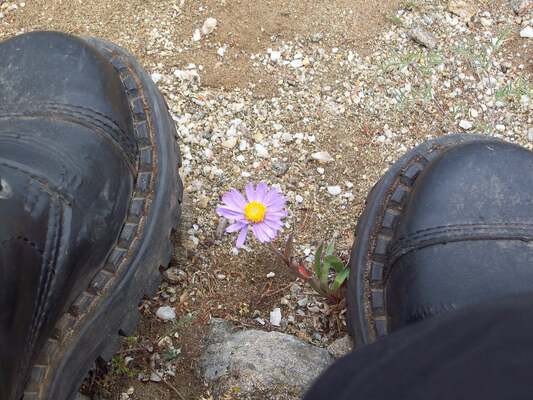
I have no idea how I found myself in that mode, a bit like Alice who fell into the rabbit’s hole and kept falling. And reflecting. That’s me now.
Maybe because we are making a full circle in the online-covid-offline-rapid changes-uncertainty-new reality? Maybe because I started to run again and when you run, your brain wanders and comes back with ideas? Or maybe I took part in Anita Modestova’s series of interviews EFL Around the World and was invited to reminisce and to reflect? Maybe all three. Maybe none of them.

Teachers and foreign languages
…and among them my first foreign language teacher who was not even a teacher of English. My first foreign language was Russian. From the first ‘здраствуйте’ (zdrastvuyte), it was like this new world, that you could enter through some, until then unknown words and a completely new set of letters. I don’t remember much about the lessons, I could not comment on the methodology and activities or even the coursebook. But I do remember my teacher, miss Janina, who was the first language magician and it was thanks to her that I did fall in love with Russian. Love at first sight.
Among them is also my first English teacher, miss Ewa who put together a most random group of kids of all ages, when the lessons of English were still a rarity and a luxury. There were no coursebooks for children so we used what our teacher could find and share.
Such as? Such as a magazine for kids, Mishka, made in the U.S.S.R, teaching the kids around the globe about Snegurochka, Baba Yaga, A.S. Pushkin, Red Square and what not, which was published also in English. Today, it makes my head spin, but back then, as a beginner, I was ploughing through and the unabridged text would not stop me because I was in love with the language. Again. We set me off and then we met again in the final year of my high school, to prepare for our A-levels and to help me get to B2+ level.
Mis Ewa was a strict teacher but a fair and inspiring teacher. In her lessons, every single minute had its own purpose and it was used effectively. Once you experience that, there is no going back.

History?
It is actually a beautiful coincidence that almost all my school History lessons, from the middle and high school, seven out of nine years, took place in this very same school and in this very same classroom. With me sitting on the very same chair. Probably.
It was in this classroom that our teacher, professor Janusz Merchut, a real maestro, taught us about the past. His were not lessons, but a performance and I still remember how quiet the whole class were, how focused. We did not listen, we lived it. Maybe it was when I got spoiled and started dreaming of lessons with a few grains of magic, lessons that are not a lecture but an experience.
In the same classroom, a few years later, I met professor Krystyna Kradyna and a new adventure began. Naturally, we did have coursebooks and the curriculum objectives to meet but these were just an idea. It was the time of change and transformation and there were many, many things that were yet to make it to the coursebooks. She introduced them and she did let us think and talk about them.

Enter Hieronymous Bosch
There were two other people that I do think about when we talk about ‘My teachers’, both of them my university professors. University of Wroclaw in Poland was my first Alma Mater during the very special five years of my MA in History programme, a long time ago, in the pre-EFL life.
Dr Piotr Oszczanowski appeared in our lives for two terms because, apart from all the obligatory subjects, we were eventually given a chance to choose a few optional modules and one of them was the History of Art. Initially, there was a lot of ‘whatever, let’s take this one’ rather than an informed decision but the best thing since the sliced bread.
Today I would say that dr Oszczanowski knew his subject and had an amazing teaching personality and classroom presence. That he engaged his students very effectively throughout the entire lesson and the entire course. But this is me, a teacher trainer at work, today. Back then, I just loved being in his class and so did the rest of the group.
He taught us how to look at art and how to read it. And it was not the case of getting the one correct answer, and memorising facts. There were different interpretations and ways of approaching the topic. Our second term was devoted to the history of art of Silesia and we spent our class time out and about in the city, looking the past in the face. Plus, we were allowed to choose what we wanted to be assessed on. For me it was Hieronymous Bosch.

‘Miss Zapart, I have no idea about jazz but this is a good topic. Go.’
….is what my tutor, professor Stanislaw Ciesielski said during the first class in our 4th year when we met to discuss our MA dissertations in modern History.
Professor Ciesielski probably sighed when he found out that he would be taking care of us since we were an inheritance from another teacher who had left.
We, on our part, we did panic because people had been saying things and it was not panic the type of a storm in a teacup, it was panic the size of a proper hurricane. Professor was said to be very strict, very accurate, very serious, a great scholar and a great brain and, in general, a force to be recognised. With time, we learnt that all of it was true but these were exactly the things made us respect him for and, really, feel extremely lucky that we were thus ‘inherited’.
I mean, it was not a bed of roses. Professor was tough and there was absolutely no way of cutting any, even the tiniest, corners throughout those two years of my research and dissertation. The job had to be done. Not getting things done was not an option. The very thought of not getting things done was not an option. It’s not that he would shout or get angry, he was the calmest person ever. You just did not want to disappoint him.
We were made to work hard but Professor was with us every step of the way, supporting and guiding and no wonder that we got great results. I also personally got spoilt for years to come as regards the role model for mentor and supervisor, strict but fair and supportive every step of the way. No idea if professor Ciesielski read about Vygotsky and the Zone of Proximal Development but he rocked it.

Coda
Today, I only wish, I could travel (or travel back in time) and return to all these classrooms to say ‘thank you’ and to tell my teachers that they did an excellent job and that they did inspire.
Does it mean that I was the one happy child in the entire universe who was taught by the amazing teachers only? Ha! Of course not. There were teachers who made me cry, who humiliated me, who shouted at me, those who made me scared or very angry. Teachers who hated their job, those who were unfair and those who simply wasted my time. In some cases I knew it back then, in a few other cases, I realised it only when I became a teacher myself.
Alas, all these will remain anonymous, although, I guess, I should be grateful, I had a chance to learn ‘What not to do’ and this counts as ‘experience’, too.
